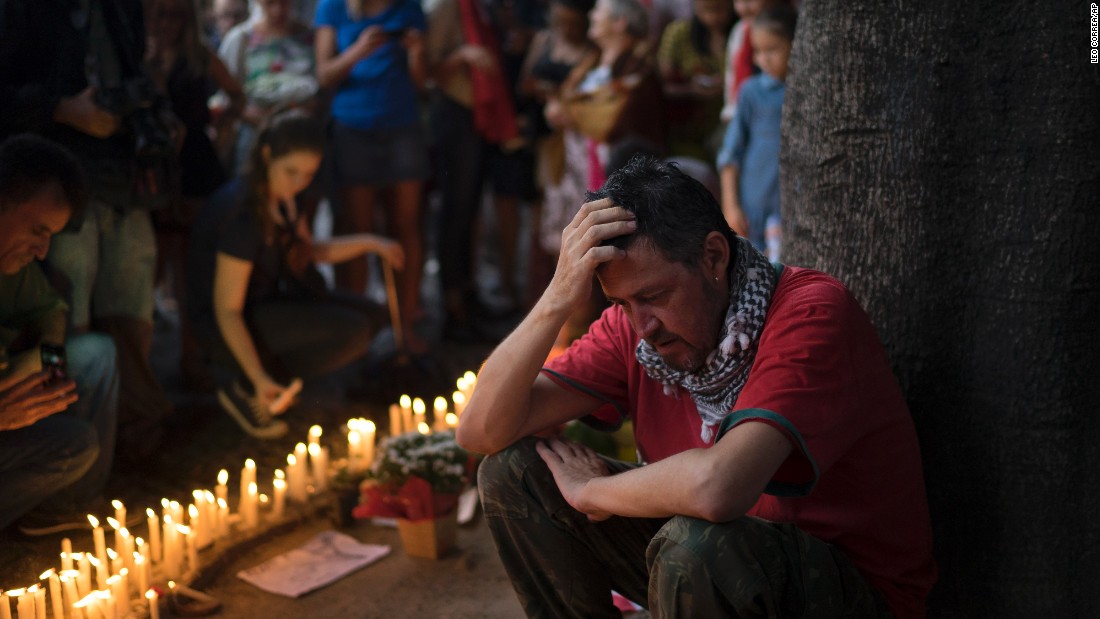By George Nageeb, ’18
On November 13th, 2015, France was darkened by the faceless attacks of Isis on the freedom of the French people. Cheering turned to weeping as ovations for the French National Soccer Team were replaced by the reverberating booms of three bombs at the Stade de France. Excitement was turned to horror as gunfire rang louder than the music inside the Bataclan concert hall. The next hours only brought wailing sirens, widespread panic, and national insecurity. The White House called this, “an attack not just on Paris, not just on the people of France, but an attack on all humanity and the universal values we share”, that left the world trembling.
Following days of general unease throughout the entire country, Parisian cafés and bistros began to refill with laughter and the clinking of beer glasses. A clear attack on the French way of life was to be combatted by the simplest of French traditions: lifting a glass with the company of loved ones— a tradition that has become a symbol of the humanist ideology by which French people are able to endure and even defy the injustice of the so-called Islamic State.
As the country united through elementary acts of camaraderie, the Eiffel Tower glowed with the colors of the French flag to remind everyone of the ancient Parisian slogan “Fluctuat nec mergitur”—“it is tossed by the waves but does not sink”. The saying reminds Parisians that although opportunities for despair may arise, they will pass, and France shall live on.
It is despair that terrorists aim for because they stand no chance against developed countries on the battlefield. Instead they seek to heighten fear: fear for one’s own safety, fear for the safety of loved ones, and fear of attacks to come. Even though terrorism may have a toll on a nation’s economy, its primary purpose is to dishearten a people. More effort, thus, is needed to encourage and help people to cope with terrorism, and to eventually control the emotional distress of terrorism.
It is no coincidence that the word terrorism begins with “terror.” Fear after all is the most powerful weapon in the arsenal of terrorism. Despite the large-scale acts of violence that terrorists claim to be responsible for, terrorism is primarily a psychological war. Isis wishes to create an Islamic caliphate that dominates the West. Their attacks are intended pressure the world so that they grant political concessions. Creating this public fear, panic, anxiety, and distress is essential to terrorism’s strategy. No matter how much the death toll may rise, the only way these attacks could truly be successful is if they are able to disturb daily life.
Most counter-terrorism is concerned with the tactics of terrorist groups; less attention is paid to thinking about the impact of terrorist attacks on targeted societies. This counter-terrorism focus is understandable given the emphasis politicians place on preventing terrorist attacks. However, we are unlikely to eliminate terrorism—political violence whose history dates back to the Reign of Terror following the French Revolution. It make more sense, then, to devote our attention to considering the effects of terrorism rather than the means.
Indeed, Søren Kierkegaard, Danish philosopher and theologian, argued the importance of looking towards the future rather than dwelling on the past. Though he wrote before the age of terrorism, his ideas are still applicable. It is clear, as Kierkegaard explained, “life can only be understood backwards; but it must be lived forwards.”
After terrorist attacks, proper commemoration for what was lost is necessary on the road to recovery. However, when people cling to sorrow for so long it becomes a part of their identities, embedded in their minds for years, the ultimate disruption of daily life. In doing so, terrorism reaches its goal.
At University School, we do not feel that we are threatened, nor do we feel that we have any effect on the power of a multi-million dollar terrorist organization. However, we have more power then we may think. To “live forwards,” not only remembering what is lost, but also choosing to focus on what remains, exercises this power. Just as the French showed “la résistance” by holding closer the friends and family that were with them, so too must we all remember to hold on to whatever still belongs to us. Fear is inevitable, but it is only as powerful as one allows it to be. It is our obligation to remind each other, just as Franklin Delano Roosevelt reminded the entire country, “the only thing we have to fear is fear itself.” We cannot allow fear to paralyze us from advancement.
The winner of this war on terror will not have the newest, the most expensive, or the most sophisticated weaponry, but rather will have the mass of people on its side. A time of fear is a time for people to unite under common cause. Instead of presidential candidates using fear to gain voters, or news channels using it to increase ratings, we should all use it as a weapon against terrorism, by joining together to overcome it.







